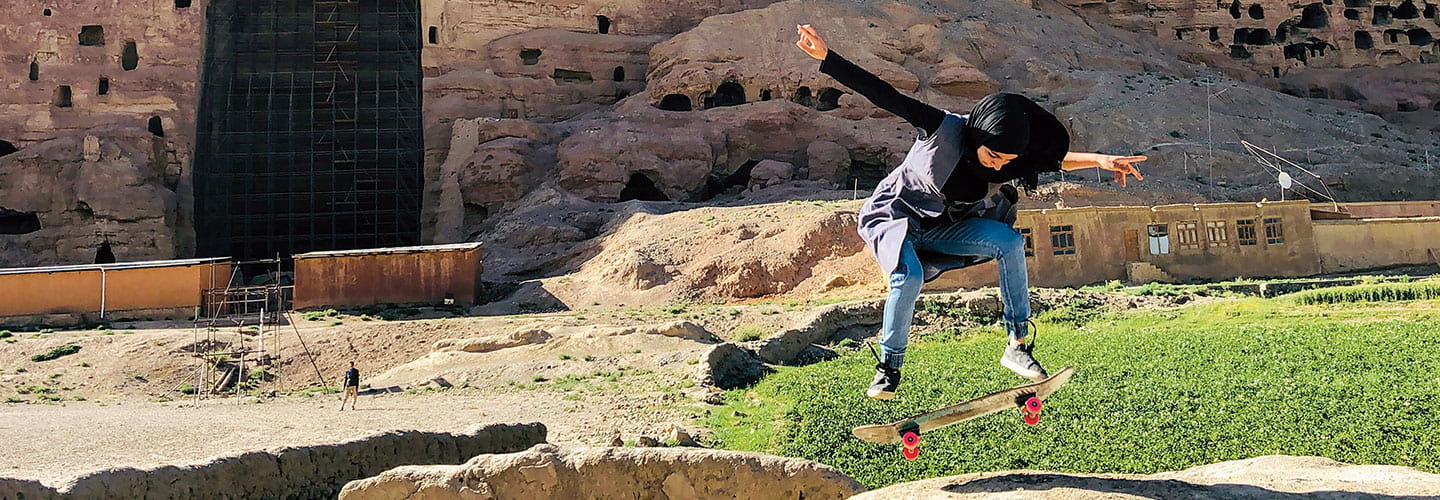Jim McMahon/Mapman®
At first glance, it looks like an ordinary indoor skate park. In one corner, teens gather atop a 6-foot-tall platform, eagerly waiting for a turn to fly down the ramp. In another, 12-year-olds weave through orange traffic cones, their bright head scarves covered by helmets. Throughout the room, shrieks of laughter mix with the rattle of skateboard wheels and the sounds of kids cheering on their classmates.
Until recently, many of these kids in Kabul, the capital of Afghanistan, had never even touched a skateboard, let alone ridden one. But at this unique school, run by an organization called Skateistan, hundreds of students are now perfecting ollies, kickflips, and other tricks. At the same time, they’re learning key life skills, including courage, teamwork, and perseverance—the strength to never give up even when things are hard.
Such lessons are important for kids in all parts of the globe, and in Afghanistan in particular. That’s because the Central Asian nation has been at war for decades. As a result, it’s long been common for young people there to live in fear of another attack, to see soldiers patrolling the streets, and to be awoken by gunfire in the middle of the night.
At first glance, it looks like an ordinary indoor skate park. In one corner, teens gather atop a 6-foot-tall platform. They eagerly wait for a turn to fly down the ramp. In another, 12-year-olds weave through orange traffic cones. Their bright head scarves are covered by helmets. Throughout the room, shrieks of laughter mix with the rattle of skateboard wheels. Another sound is kids cheering on their classmates.
Until recently, many of these kids in Kabul, the capital of Afghanistan, had never touched a skateboard, let alone ridden one. But this is an unusual school, run by an organization called Skateistan. Here, hundreds of students are now perfecting ollies, kickflips, and other tricks. They are also learning key life skills, including courage and teamwork. And they are learning perseverance—the strength to never give up even when things are hard.
Such lessons are important for kids in all parts of the globe, and especially in Afghanistan. That is because the Central Asian nation has been at war for decades. As a result, for a long time now, young people there have lived in fear of another attack, seen soldiers patrolling the streets, and been awoken by gunfire during the night.

